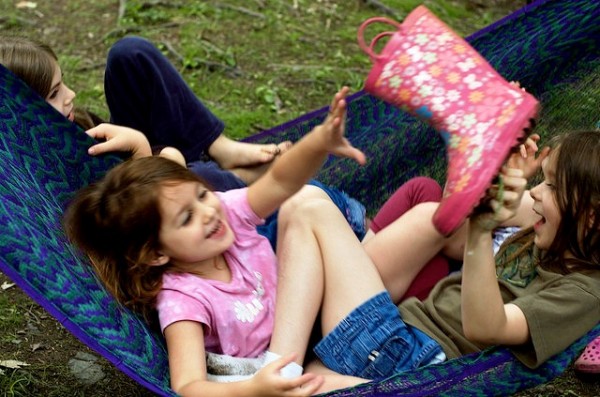Experts Explain Why Having Childhood Friends is Important

Childhood friendship plays a pivotal role in molding one's character and building values, say psychologists.
Friendship in early years helps develop emotional closeness, social bonding, skills to communicate and how to cooperate and reciprocate to others feelings. Psychiatrists at the Loyola University Health System assert that having childhood relations and friendships influences a person's morale, values and perspectives that help form new relations in later years.
Parents, family and siblings are the first cord of connection for children who later set out to explore the world beyond home and peers. Building friendly associations with other children equips them with team-building skills, problem solving techniques, critical thinking and other attributes needed to deal during the entire life.
"As human beings, we are social creatures at every developmental stage, from infancy to adulthood. Each stage has different goals to be achieved and mastered, with respect to social and moral development, and each is important towards contributing to how well one functions as an adult," said Theodote K. Pontikes, assistant professor in the departments of Psychiatry and Behavioral Neurosciences and Pediatrics at Loyola University Chicago Stritch School of Medicine, in a news release.
Health experts also believe parents and caregivers should ensure their children interact with their peers and playmates by holding supervised playdates. Apart from helping children develop social skills, companionship also fosters understanding of time management, social comparison, affection and empathy.
"Family gatherings, school and houses of worship are great places to provide early opportunities for kids to learn how to interact with others and to form friendships. As children grow older, participating in a sport or extracurricular activity can help the child build additional social skills that can further enhance self-esteem," added Pontikes.
Isolation and loneliness during childhood can be detrimental to the wellbeing and mental health of children. Those without playmates and friends often feel depressed and have difficulty expressing fear and emotions, which later culminates in the form of serious mental disturbances.
"When a child seems isolative and doesn't express an interest in being with others, it can be beneficial to consult a specialist to rule out depression and other conditions. This also provides children and parents the opportunity to find appropriate guidance, so as to optimize a child's potential," said Pontikes.
Jul 25, 2014 07:39 AM EDT




